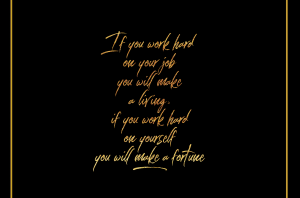
I found Dr. Noam Shpancer’s post “What Do Women Want?” fascinating, and I have no intention of disputing any of the interesting findings he reports and interprets. In this post, I will just offer some practical considerations inspired by his post, including a conversation about the post that I had with one of my best friends. (Note: In this post I am discussing opposite-sex relationships exclusively, as Dr. Shpancer did. I would be very interested, however, in hearing perspectives on these issues from people in or seeking same-sex relationships.)
What captured my and my friend’s attentionmost in Dr. Shpancer’s post was the importance to a woman of being desired in a very primal way, a point with which my friend—a woman—strongly identified. She told me that one of the best things about her current relationship was how strongly desired her boyfriend made her feel—both physically and intellectually—at the same time that she felt respected and cared for. She said it was important for her to be desired physically, but not just physically: desired for everything she is, inside and out.
My friend sympathized, and answered that it takes communication and understanding, fostered within a loving and caring relationship, to make both the man and the woman comfortable with spontaneous expressions of tremendous passion. This was a fantastic point with which I heartily agreed, but I added that the balance a couple can achieve in the context of a committed, affectionate relationship is also important in the relationship’s early stages, when the couple is less likely to have achieved this level of understanding. And it is exactly at this point in a relationship that a man is most uncertain about where to strike that balance between thoughtful consideration and overwhelming desire. My friend responded that this is an argument for taking things more slowly when starting a relationship, to make sure that the communication and understanding between a couple keeps ahead of both the emotional and physical involvement in the relationship, but in a way that doesn’t put out the fires of the passion of the early stages of a relationship. Wise counsel, but more easily said than done!
Maybe it’s just me, but if I were dating and trying to achieve the appropriate balance between thoughtful consideration and spontaneous desire, I would consider the costs of failing to show sufficient respect—specifically, the risk of offending or hurting a woman—to be much higher than the costs of showing insufficient desire and passion—mainly, risking making a woman unhappy and endangering the success of the relationship. The way I think about things, I would consider the first risk much more serious than the second, and I would err on the side of respect and consideration. This may be what’s behind the man Dr. Shpancer calls “the delicate, tentative guy who politely thinks about you and asks if this is okay or that’s okay,” who “may well put you into a sexual coma—not despite these qualities, but because of them.” (Sounds like me all right!)
Basically, men can understand on an intellectual level that women want to be desired, but we find it hard to relate to this on a visceral level. Those of us who are more intent on being respectful and considerate toward women—such as the “delicate, tentative guy” from above—are less likely to take a chance on doing something we don’t completely understand (and therefore may fail horribly at). While some men wrongly feel entitled to express their primal desires whenever and however they want, there are others who are hesitant ever to express them, not out of fear of being rejected but out of fear of offending or hurting. These men may not light a woman’s fire immediately, but given some time to nurture an understanding relationship in which they can become comfortable expressing their desires, they may surprise women with their overwhelming passion. As my friend said, communication is essential, but takes time—time for a woman to discover how much she likes the gentleman she sees before discovering the beast within.
Click here to become a Slaylebrity Curator
By Psychology






